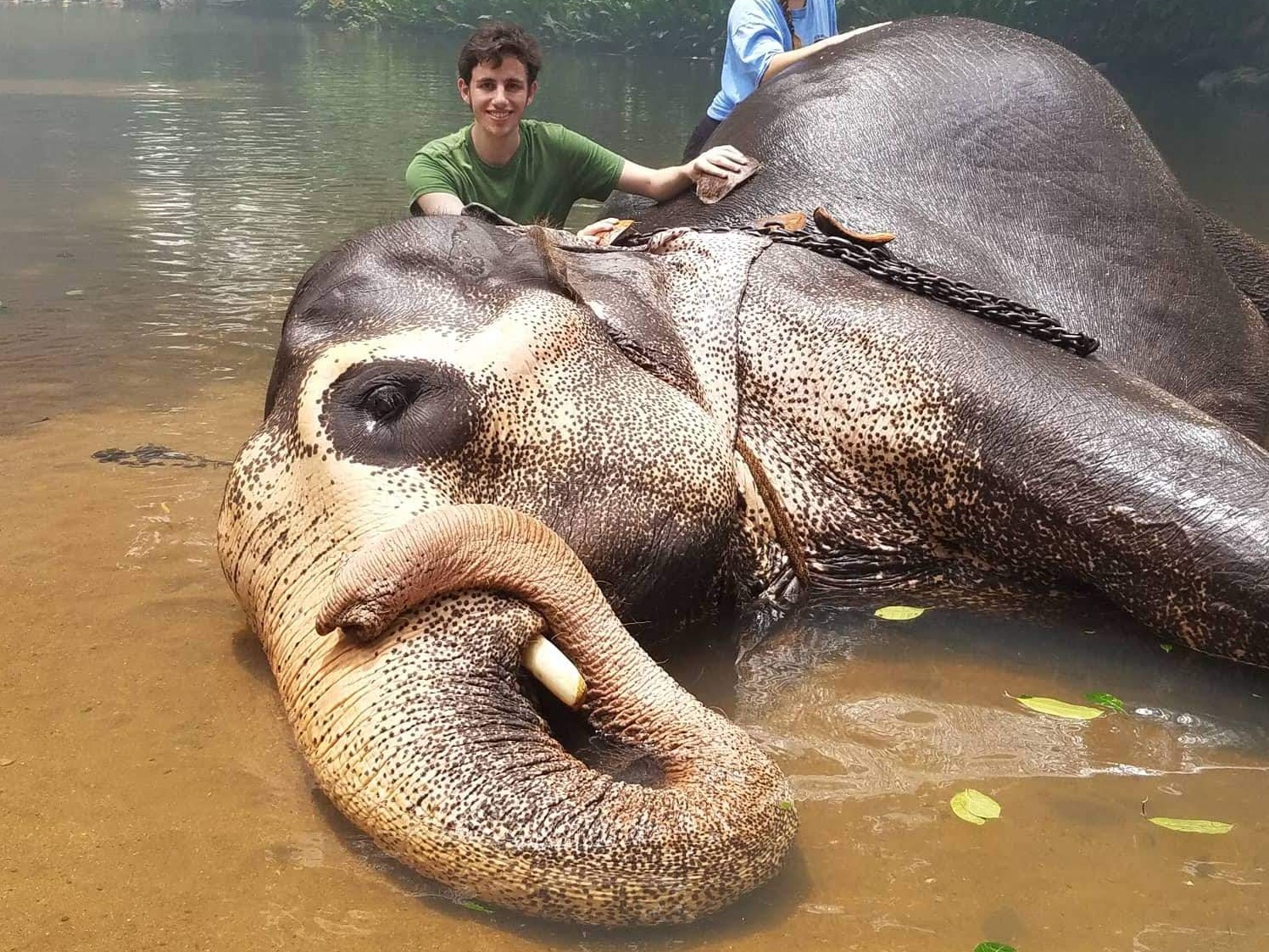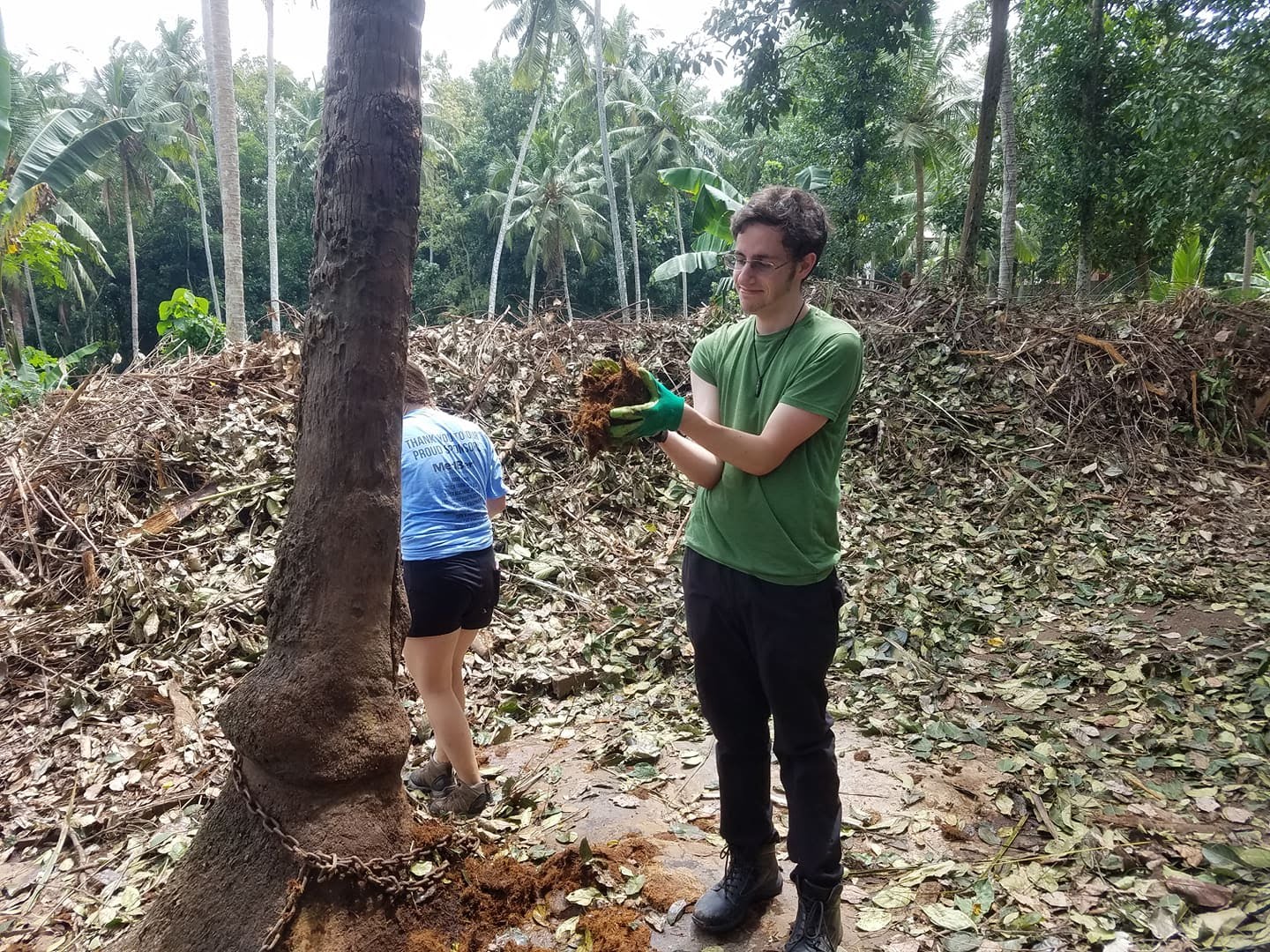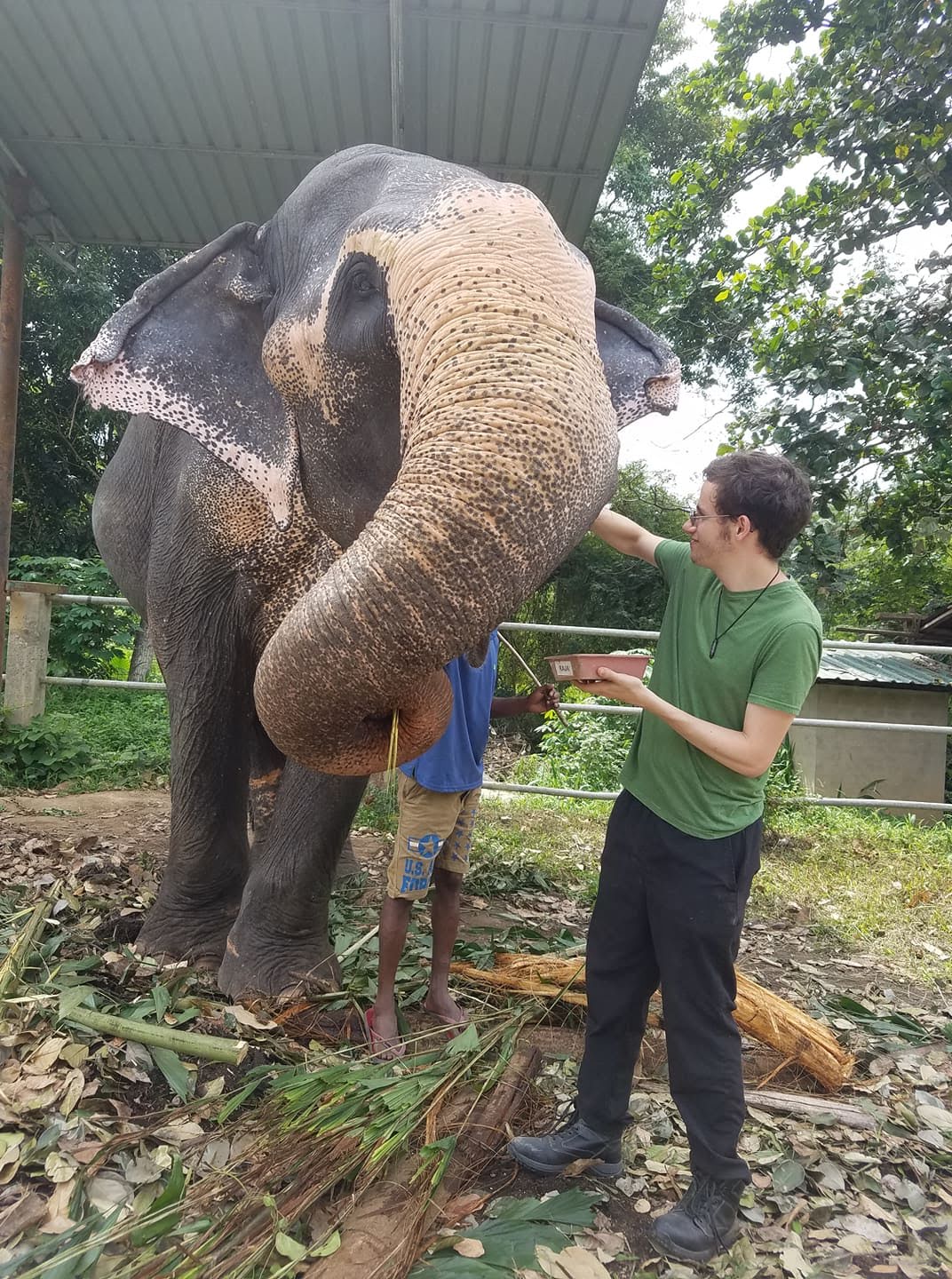Stephen Harris
Stephen Harris - A Summer in Sri Lanka- Elephant Behavior and Microbiome Analysis
Over the summer I spent eight weeks in Sri Lanka working with the veterinary school at the University of Peradeniya to study the behavior and gastrointestinal microbiome of Asian elephants who subsidize their diets with food scavenged at dump sites. These elephants are facing an ever-increasing issue with loss of habitat due to human encroachment and land development and because of issues related to human-elephant conflict, eating from dumps rather than invading human villages is a far safer option to the elephants. To accomplish this, I spent time at a dump site in Dambulla doing in person observation of a group of elephants during a feeding session while collecting fecal samples to perform DNA extraction. The samples were brought back to the university where DNA was extracted and purified using PCR and then analyzed using gel electrophoresis to determine the presence of bifido bacteria as well as the presence of specific strains. The purified DNA will also be shipped to the UC Davis David Mills Lab to be genomically sequenced along with control samples collected from a previous student project used for contrast. This research was conducted as a pilot study with the hope of expanding it to future trash sites to build a more statistically significant case on the effects of trash eating in elephants. I pursued this project because animal welfare is an important issue to me and it is important to know that you can affect change internationally when these opportunities present themselves. I also wanted to ensure that as someone who grew up with dreams of being a small animal veterinarian that I was not pigeonholing myself into a single aspect of the profession and wanted to experience a broader scope in the field, so I could be more confident in my career path. I also believe that the experience I gained working with people carrying values and opinions different from my own was important in my ability to keeping an open mind about new ideas and gave me a better sense of compassion and flexibility while working with new people.
When I was not working on the project I spent the rest of my time in Sri Lanka taking in the local community and culture of the country. I do not believe you can do a trip to any new place justice if you do not attempt to use the experience to broaden your horizons by embracing what a new place has to show you. I explored Buddhist and Hindu temples, saw many different animals, worked with an elephant sanctuary, and saw the breathtaking beauty of the country. Global programs offers students the truly unique experience of being able to pursue your veterinary passions while experiencing the multiculturalism so integral to the worldview necessary to be a compassionate and understanding practitioner. Working at the Millennium Elephant Foundation gave me great respect for the people who devote their lives to the care and preservation of the species. Elephants are truly amazing creatures and the lengths that the handlers and volunteers go to each and every day to ensure they living the best lives they can are truly inspiring. I hope that what work I did over the summer can lead to improving the lives of elephants in Sri Lanka and that I will have inspired other to pursue their passions and piqued curiosity enough to delve into the world of research. Every person in this field wants to help animals at the end of the day and this just another way in a long list that we can work to accomplish that.



